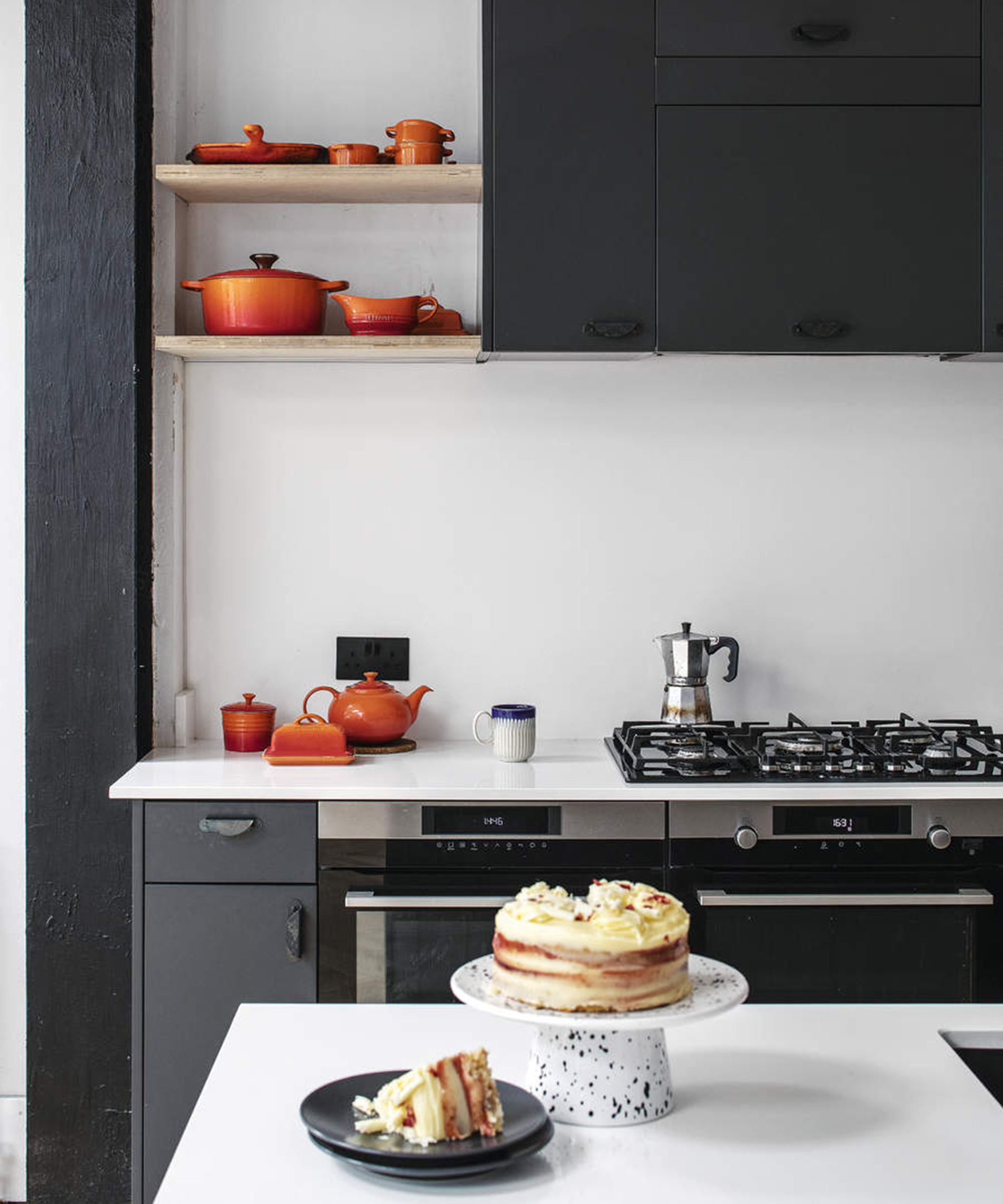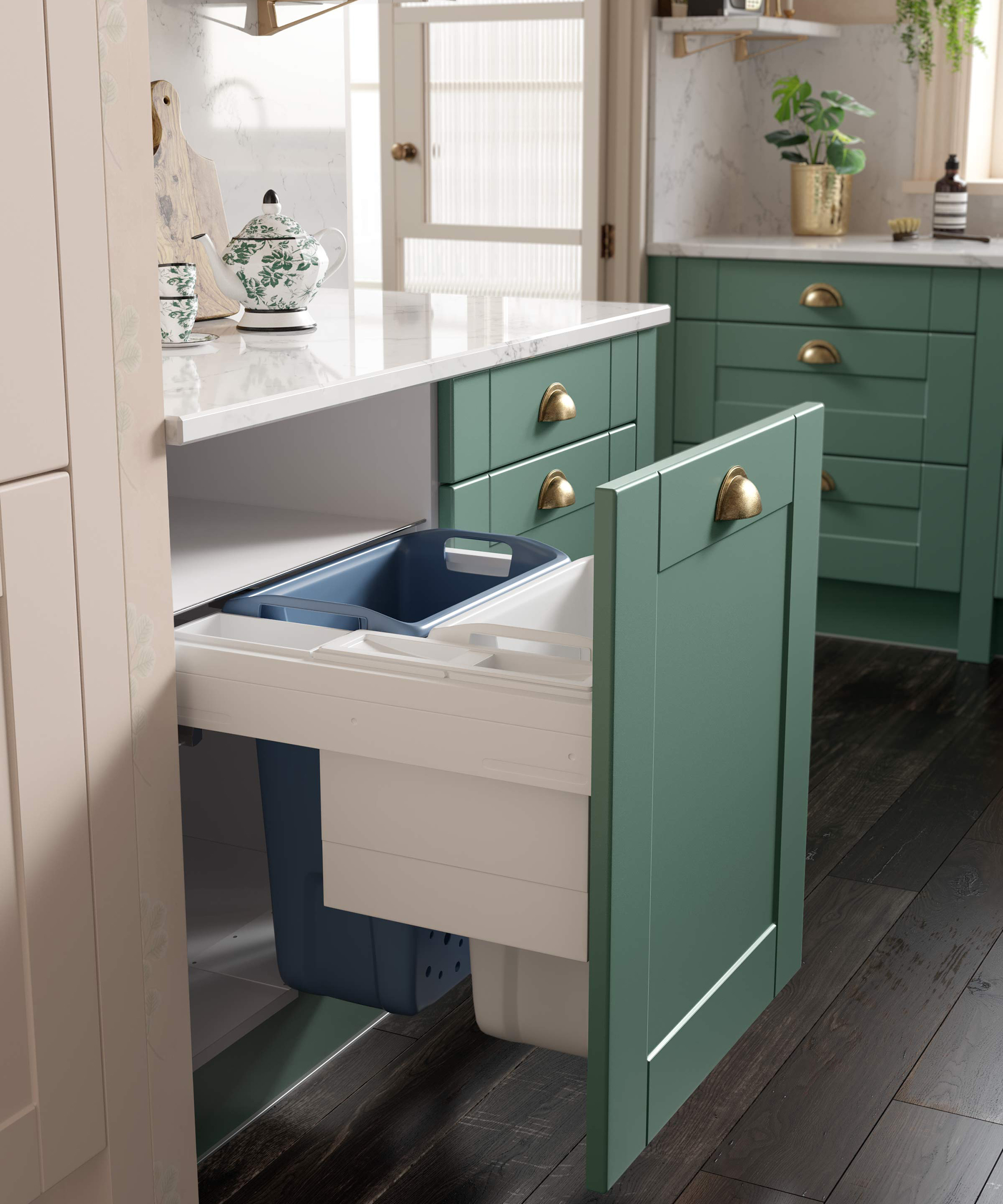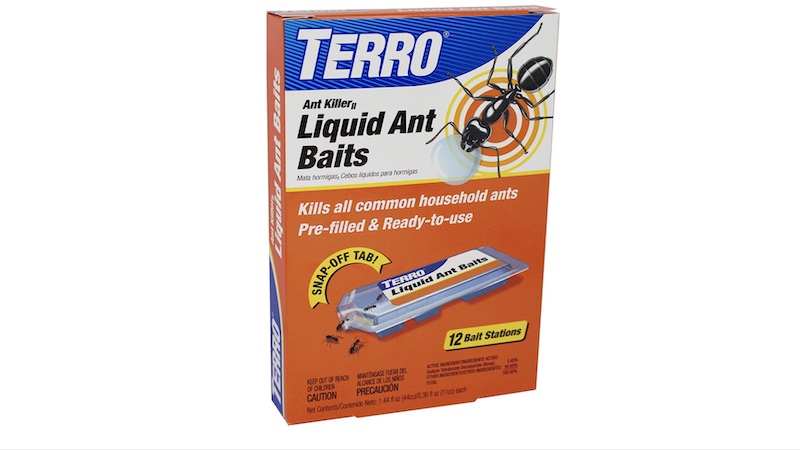How to get rid of ants in your home and stop them coming back for good
Learn how to get rid of ants and put them off returning with home-made repellents


Learning how to get rid of ants in your home is especially important in the summer when these pests seek shelter from the heat, water and new food sources. And, where there is one, there is more, so dealing with ant invasions quickly will stop the entire colony trailing its way inside your home.
Our simple but effective expert-led five-step guide will help you banish these insects from your home, and stop them returning, with tips on techniques, process, product recommendations and how to make home-made repellents.
Since you've already identified the bug infesting your home, let's get started on banishing them for good!
Get rid of ants in your home with five simple steps
To effectively get rid of pests, you must find where they are entering your house, remove their food sources, clean thoroughly to remove ant trails and seal up your home, our experts say.
Where our pest control pros have recommended products, we've source highly-rated buys from trusted retailers to help you remove ants from your abode for good.
All prices were correct at the time of publication.
Step 1: Spot entry points

Ants leave chemical trails behind to help them navigate back to their colony, as well as tell their ant-pals the route to come and join the fun. Identifying entry points is the first step to ridding your home of an infestation so you can cut off their access.
Get small space home decor ideas, celeb inspiration, DIY tips and more, straight to your inbox!
They are attracted to food sources, including fat and grease, and many species need water to grow their colony and will nest their new babies nearby. Heat, humidity and wet weather drive them indoors, which is why you are more likely to find ants in your house in spring and summer.
Check indoors and out for gaps around windows, doors, vents, and piping as this is often where they gain entry. It's not just kitchens you need to rid of ants, but they can appear in bathrooms and bedrooms, too.
Once you've found the cracks, use a 50/50 water and vinegar mix to clean the area, then seal it with a waterproof sealant. The vinegar will remove any scent trails, whilst also repelling ants.
We recommend Aunt Fanny's Cleaning Vinegar Spray in Eucalyptus Scent from Amazon as ants hate both smells, and the eucalyptus smell is from essential oils, which are particularly good at repelling pests. Our sealant of choice is Gorilla Waterproof Clear Caulk and Seal, also available on Amazon, which is not only great for multiple surface types, but will dry clear and withstand rain and other tougher weather. The product linked is a cartridge so you'll need to purchase a dispenser gun if you don't have one, or scroll down the listing for other variants of the same product, including a smaller squeezy tube version.
Step 2: Clean thoroughly

If you've discovered the source of the problem is a tasty food source, vacuum it up, get rid of your vacuum bag (we'd advise double bagging it to stop ants getting out and returning) and clean the area thoroughly with a hot soapy solution or your favorite cleaning supplies to get banish ants in your kitchen fast.
Don't forget to clean your kitchen cabinets, bathroom, and behind appliances and furniture: all the places pesky little ants can find their way into.
Then, for extra ant-proofing, place all sweet foods in air-tight containers and ensure pantry items such as jam, honey and sauces are not leaking, or sticky with product on the outside and thoroughly clean your pantry. Vinegar can be used for all sorts of cleaning tasks, as can salt and citrus peels so you can use what you already have.
Step 3: Empty all trash

A trash can full of rotting food is a fun day out for an ant. Empty them regularly, clean the inside and outside to remove food and drink residue, and consider buying a trash can with a lid (such as the sturdy two-pack of wheeled large trash cans from Amazon).
I use hot water, a big squirt of dish soap and a splash of vinegar to clean my outdoor trash cans and the area around them every two weeks in the summer to keep pests away. If my trash is awaiting collection and proving stinky, I sprinkle a good dose of salt in to the bin to help control the rot and odor.
Keep your indoor kitchen trash can enclosed in a cupboard (but make sure to empty and clean it regularly), or have a lid on yours to hinder entry points and make it harder for ants to find the food source.
Step 4: Use bait and pesticides

"Ants are persistent pests," says Sarah Fishburne, of Home Depot. "An infestation can be hard to control because of the nature of the insect. With the right ant killer and some simple preventative measures, you can stamp out ants and keep them out of your home all year round."
Our pest control pros have previously told us boric acid (borates) are great for killing ants as the powder disrupts their nervous system and weakens their exo-skeletons, causing them to dehydrate. But make sure you don't use too much as this will only repel, not coat and kill the ants traipsing around your home.
Place the powder along floor edges, and behind places they might hide.
For bait, DIY expert, Amy Poulton, of Hometalk, says to mix a cup of flour and a cup of borax till it is watery, pop into bowls and place them in key areas you've seen ants to bait them into the mix. You can also dunk cotton in the mix and stuff them in cracks or entrance points.
Try Pure Original Ingredients Borax from Amazon or make it easy on yourself with a pre-made bait such as Borax-containing Terro Ant Killer Liquid Ant Baits from Target.
If you don't want to use the more toxic chemical, you can sprinkle a little sugar onto petroleum and mix, leading to a sticky ant bait trap that will see them get stuck. Then bag and bin the yucky trap.
Make sure to refresh your baits every couple of days, or as directed if using a commercial product, such as the popular and well-rated Terro Liquid Ant Traps from Walmart.
Diatomaceous earth works to dehydrate and kill ants. We particularly like the HARRIS Diatomaceous Earth Food Grade, Half Pound with Easy Application Puffer Tip, which you can use in between your kitchen cabinetry. Once the infestation is over, hoover it up.
Step 5: Repel ants

Once you've taken the above steps, you'll need a process in place to repel ants and stop them coming back.
If you're not keen on using harsh chemicals in your home, create a solution of water and lavender or peppermint essential oils to repel the ants. Spray liberally.
We recommend Aunt Fanny's Cleaning Vinegar Spray in Eucalyptus Scent from Amazon as ants hate both smells, and the eucalyptus smell is from essential oils, which are particularly good at repelling pests.
You can also make a home-made cleaning solution by mixing 10-30 drops of your chosen essential oil into two cups of water, and a tiny squeeze of dish soap. I use this mix to keep my counters and surfaces clean, and find it not only makes your house smell amazing, but is brilliant at easily shifting marks and scuffs but super from streak-free shine on glass and stainless steel.
Cinnamon, pepper, clove, and mint are other products you have at home that will help repel ants.
Now you've learned how to get rid of ants in your home, tackle the great outdoors with our guides on banishing flying ants, how to get rid of ants in your backyard, and the best way to keep pests out of your home.

Hi! I'm editor of Real Homes. I've been a senior journalist and editor for national magazines and newspapers for 16 years, specializing in consumer, real-life, and lifestyle articles. I have a BA in English Language and Communication, mentor journalists, and I’m also founding editor of Lacuna Voices, an independent digital platform. I love to cook, add character to my newly-built home, try my hand at DIY projects, keep my collection of plants alive, and make memories with my little family of three. For Real Homes, I specialize in articles on pest control, DIY, declutterring and cleaning, interviewing experts daily for their top tips and product recommendations.